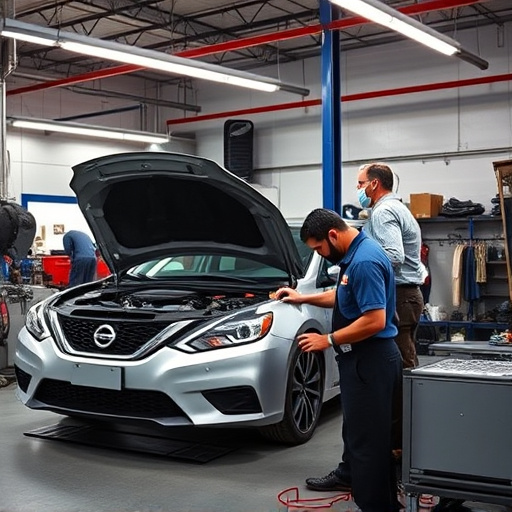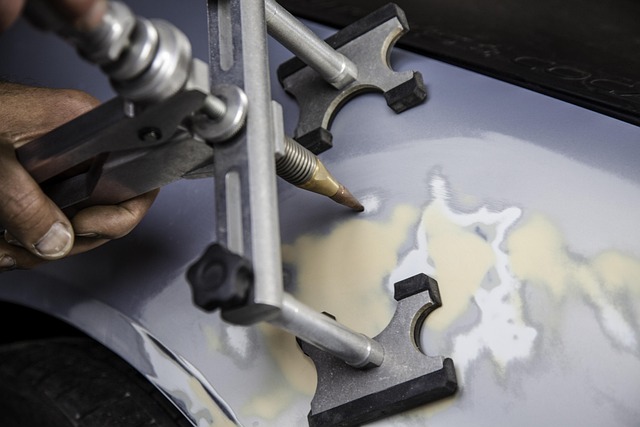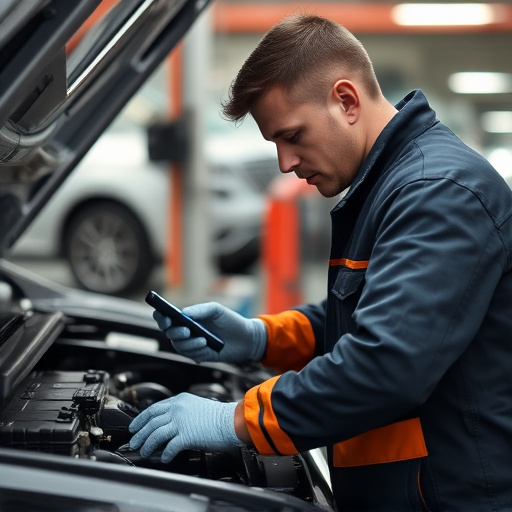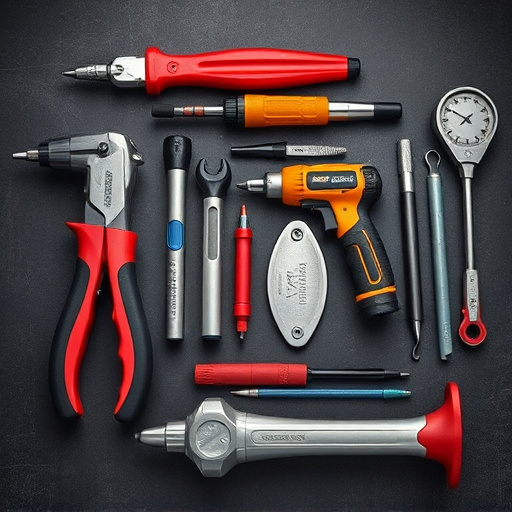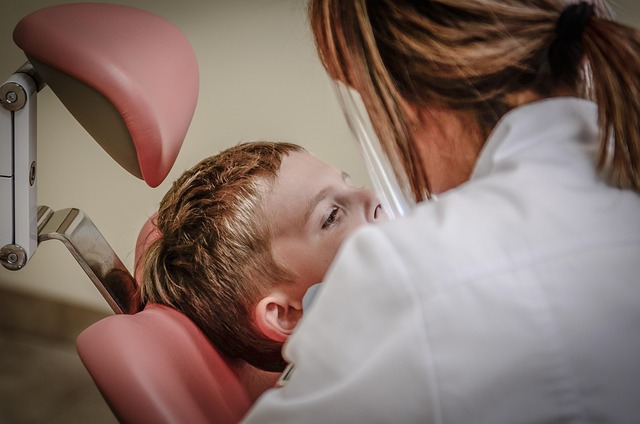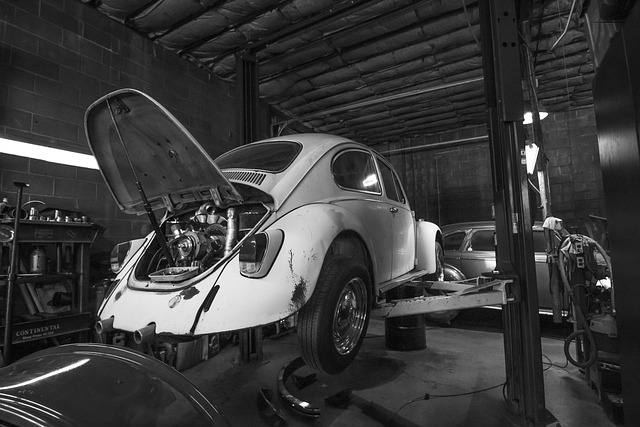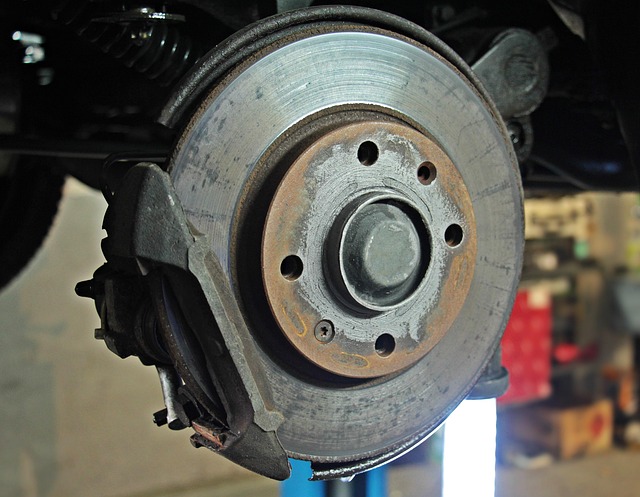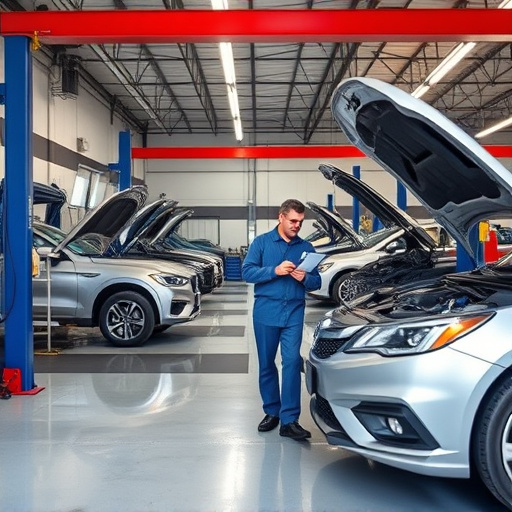Mastering certified welding techniques is crucial for collision repair technicians in today's automotive industry due to complex vehicle designs and advanced materials. Key certifications from organizations like SRA and ASE ensure structural integrity, streamline operations, and enhance customer satisfaction. These skills are valuable assets, offering career opportunities, marketability, and job security while validating expertise in up-to-date repair standards and methods.
In today’s collision repair industry, mastering certified welding techniques is paramount. Welding isn’t just a skill; it’s an art that demands precision and expertise to ensure safety and structural integrity. This article explores why certified welding techniques are essential for collision repair technicians, delving into the common certifications, their career benefits, and how they drive excellence in this dynamic field.
- Understanding the Importance of Certified Welding Techniques
- Common Welding Certifications for Collision Repair Technicians
- How These Certifications Enhance Career Opportunities in Collision Repair
Understanding the Importance of Certified Welding Techniques

In today’s competitive automotive industry, understanding the importance of certified welding techniques for collision repair technicians cannot be overstated. With an increasing number of modern vehicles featuring complex structural designs and advanced materials, the need for precise and reliable welding has become paramount. Certified welding techniques ensure that repairs are not only structurally sound but also meet or exceed safety standards, ensuring the integrity of the vehicle’s overall structure. This is particularly crucial in the event of hail damage repair or autobody repairs, where accurate welding is essential to prevent further damage or compromise the safety of drivers and passengers.
Certified welding techniques also play a significant role in streamlining the auto repair shop’s operations. Technicians equipped with these skills can efficiently handle various types of welds, reducing repair times and labor costs. Moreover, it enhances the overall quality of workmanship, leading to satisfied customers and a positive reputation for the shop. In light of these factors, embracing and promoting certified welding techniques is not just a best practice but a necessity in today’s collision repair landscape.
Common Welding Certifications for Collision Repair Technicians
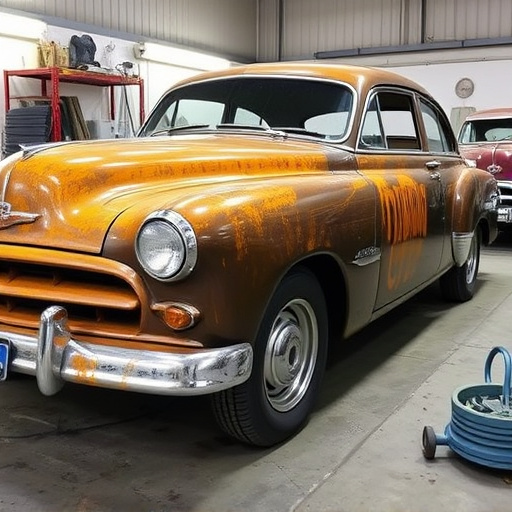
In today’s automotive industry, collision repair technicians require a diverse skill set, and certified welding techniques are at the heart of their work. The most common welding certifications sought after in this field include Structural Repair Association (SRA) certification, which ensures individuals possess the knowledge to perform precise and safe structural repairs on vehicles. This certification is highly regarded by many auto body shop owners due to its rigorous standards.
Additionally, the National Institute for Automotive Service Excellence (ASE) offers specialized welding certifications for collision repair technicians. These certifications cover various aspects such as metal fabrication, welding processes, and material compatibility. Being ASE-certified demonstrates a technician’s expertise and commitment to quality in vehicle repair services. Collision repair shops often require these certifications to maintain high standards and provide reliable collision repair shop services.
How These Certifications Enhance Career Opportunities in Collision Repair
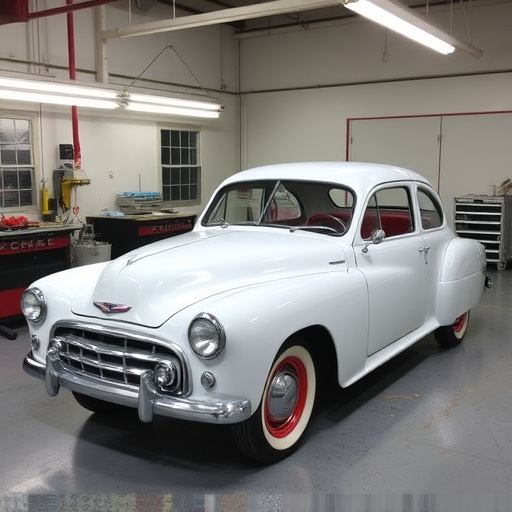
In today’s competitive collision repair industry, certifications in certified welding techniques are more valuable than ever. These credentials not only demonstrate a technician’s skill and expertise but also open doors to a wide range of career opportunities. With the automotive sector constantly evolving, staying certified ensures that technicians are up-to-date with the latest welding standards and methods, making them indispensable assets for auto body shops, especially those specializing in hail damage repair or luxury vehicle repair.
Certified welding techniques enhance career prospects by showcasing a technician’s ability to handle complex repairs, ensuring vehicle safety, and maintaining high-quality standards. This specialization can lead to advanced roles such as senior technician, lead welder, or even management positions within the auto maintenance sector. By investing in these certifications, collision repair technicians position themselves as experts in their field, increasing their marketability and job security in an industry that demands precision, adaptability, and continuous learning.
In today’s collision repair industry, mastering certified welding techniques is paramount. With advanced vehicle designs and increased safety standards, collision repair technicians need specialized knowledge and skills. The right certifications not only ensure quality repairs but also open doors to better career opportunities. By investing in these credentials, technicians can confidently tackle complex tasks, enhancing their employability and contributing to safer, more reliable vehicle restorations.
